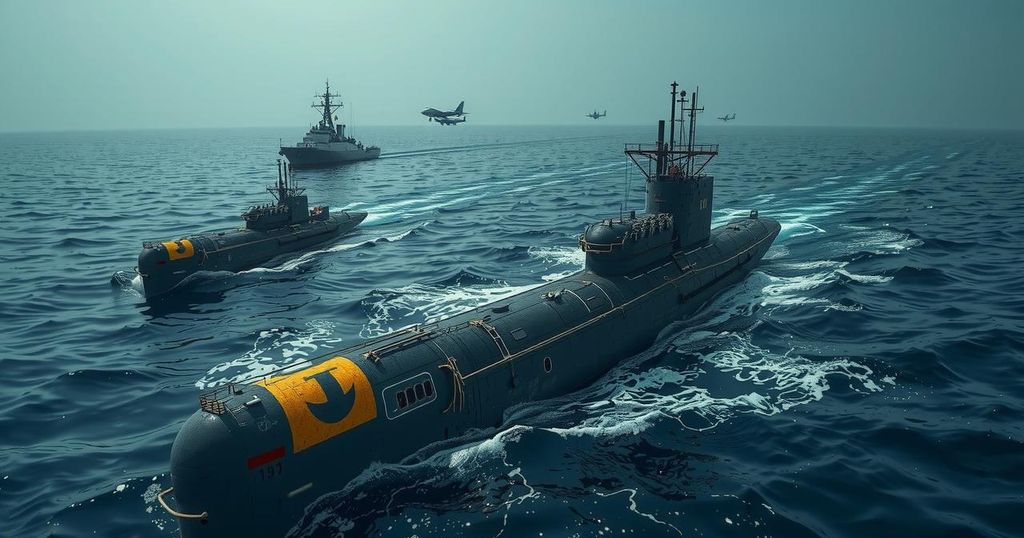Politics
AFP, ASIA, BRP SIERRA MADRE, CHINA, DEFENSE, EUROPE/ASIA, FERDINAND MARCOS JR, JONATHAN MALAYA, MALAYSIA, MARCOS, MEXICO, NATIONAL SECURITY COUNCIL, NAVAL OPERATIONS, NORTH AMERICA, PHILIPPINE COAST GUARD, PHILIPPINE NAVY, PHILIPPINES COAST GUARD, ROY VINCENT TRINIDAD, RUSSIA, TASS, TERRITORIAL DISPUTE, TERRITORIAL DISPUTES, UNITED STATES, VLADIVOSTOK, WEST PHILIPPINE SEA
Sophia Klein
Philippine Military Responds to Russian Submarine Pass in South China Sea
The Philippine military monitored a Russian submarine in the South China Sea after it identified itself en route to Vladivostok. President Ferdinand Marcos Jr. expressed concerns over territorial intrusions, alongside reports of Chinese military actions against local fishermen, highlighting ongoing tensions in the region.
The Philippine military recently dispatched naval vessels and aerial support to monitor a Russian submarine that traversed the South China Sea near the Philippines. The submarine identified itself in a radio communication with the Philippine navy, stating its intention to return to Vladivostok, following joint exercises with the Malaysian navy. While the vessel possesses the right to innocent passage, its presence evoked concern amid the backdrop of growing territorial tensions in the region, particularly regarding China’s assertive claims over the South China Sea. President Ferdinand Marcos Jr. expressed apprehension about such intrusions into the West Philippine Sea, reiterating the country’s sovereignty over its exclusive economic zone (EEZ). Furthermore, complications have arisen with reported aggressive maneuvers by Chinese military assets toward Filipino fishermen within disputed waters, highlighting the heightened need for vigilance and protection of national interests against external threats.
In recent years, the geopolitical landscape of the South China Sea has become increasingly complex, with territorial disputes involving the Philippines, China, and other neighboring countries. The region is known for its strategic importance due to trade routes and natural resources. China’s expansive claims have often led to confrontations with Philippine authorities, prompting military and diplomatic responses from the United States and other allies. Additionally, the growing military cooperation between Russia and China, particularly following the invasion of Ukraine, further exacerbates regional tensions and necessitates heightened military awareness and readiness among affected nations.
In conclusion, the sighting of the Russian submarine in the South China Sea underscores the escalating complexities of regional security dynamics, as nations contend with external military presence and territorial infringements. While Philippine authorities maintain that the submarine’s passage is not alarming, the overall atmosphere remains tense, marked by ongoing threats from Chinese military activities against Filipino interests in coastal waters. The situation emphasizes the importance of diplomatic and military preparedness in protecting national sovereignty.
Original Source: www.cbsnews.com








Post Comment